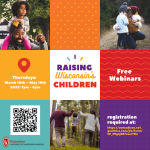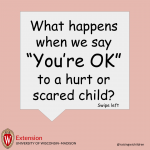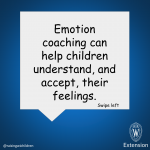FREE Programs for Parents/Caregivers
Our fall 2022 schedule of programs for parents and caregivers is now available. All programs will be remote, using Zoom. Positive Solutions for Families (5 sessions). This is a comprehensive program providing many strategies parents can use to help their children learn important social skills, understand what is expected of them, and manage their feelings. […]
Read More...











